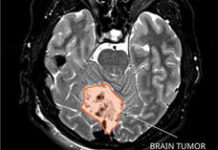A machine learning-based model using clinical and patient-reported data from patients with various cancers may be an accurate tool for prediction of the objective response rate (ORR) following treatment with immune checkpoint inhibitors (ICIs), according to findings presented at the ESMO Immuno-Oncology Virtual Congress 2020, held from 9 to 12 December 2020.
In this study (NCT3928938) Sanna Iivanainen of the Oncology and Radiotherapy Department, Oulu University Hospital in Oulu, Finland and colleagues investigated whether a machine learning model that combines clinical and patient-reported data could be used to predict patient response following treatment with ICI.
The investigators constructed a machine learning-based prediction model for the ORR using data of 31 patients receiving ICI therapies for various advanced cancers. Of the prospectively collected data sources used as inputs for the model, 63 were clinician-assessed treatment responses, and others included reported immune-related adverse events according to Common Terminology Criteria for Adverse Events (CTCAE) and laboratory measurements consisting of 9 values. Patient-reported symptom data including 18 monitored symptoms was collected using the Kaiku Health digital platform. The model also included the time from treatment initiation, as well as the patients’ age and sex. The laboratory values and patient-reported symptoms, were expressed as changes from baseline, and were linked to the treatment responses.
The prediction model for ORR was built using gradient a boosting technique (XGBoost). Prediction performance for unseen samples was evaluated using leave-one-out cross-validation (LOOCV), which trained and tested 63 models, each time iteratively leaving one sample out as a test set. The LOOCV prediction performance was evaluated with accuracy measures including the area under curve (AUC), F1 score, and Matthew’s correlation coefficient (MCC).
The model provided an ORR prediction following ICI therapy
The machine learning-based model was able to predict the ORR in patients undergoing ICI treatment for various cancers using XGBoost LOOCV performance with 75% accuracy, AUC 0.71, F1 score = 0.58, and 0.40 MCC.
Conclusions
According to the authors, this study demonstrated that it is possible to predict the ORR for patients undergoing ICI therapies with a machine learning model combining clinical, routine laboratory, and patient-reported data even with a limited size cohort.
They concluded that these promising results indicate that machine learning-based approaches in treatment response prediction warrant further investigation and validation with a larger dataset.
No external funding was disclosed for this study.
Reference
38P – Iivanainen S, Ekstrom J, Virtanen H, et al. Predicting objective response rate (ORR) in immune checkpoint inhibitor (ICI) therapies with machine learning (ML) by combining clinical and patient-reported data. ESMO Immuno-Oncology Virtual Congress 2020 (9-12 December).








